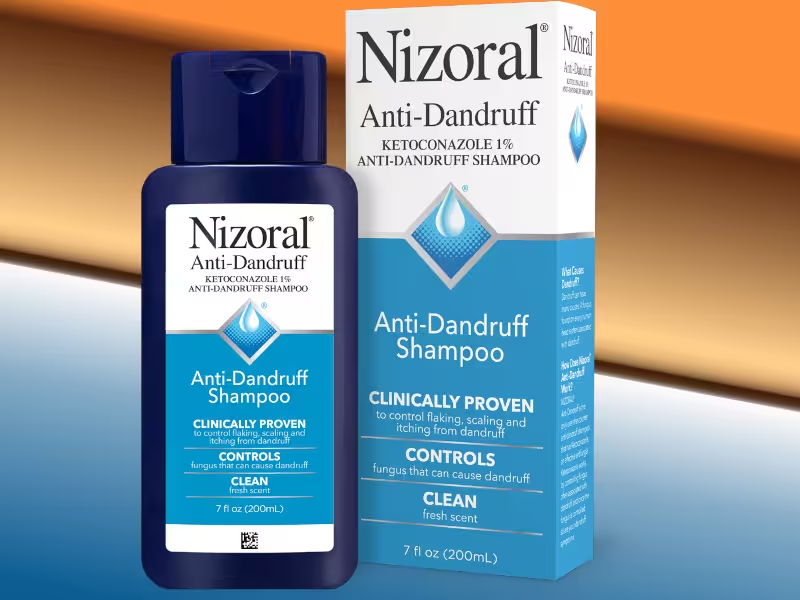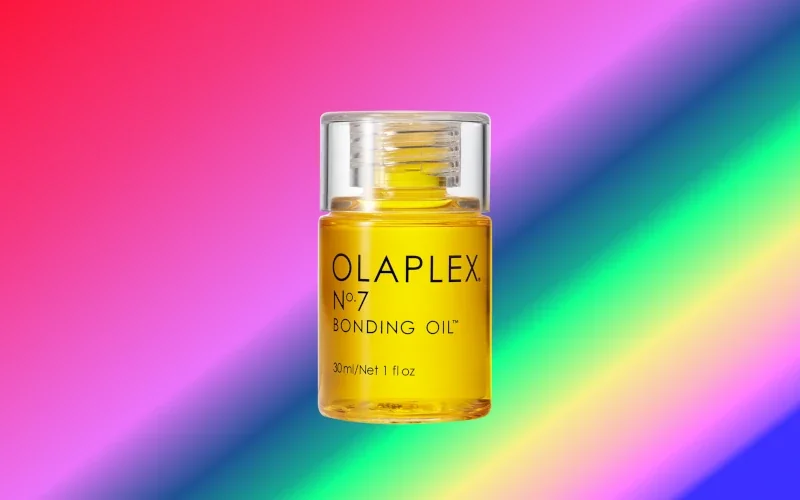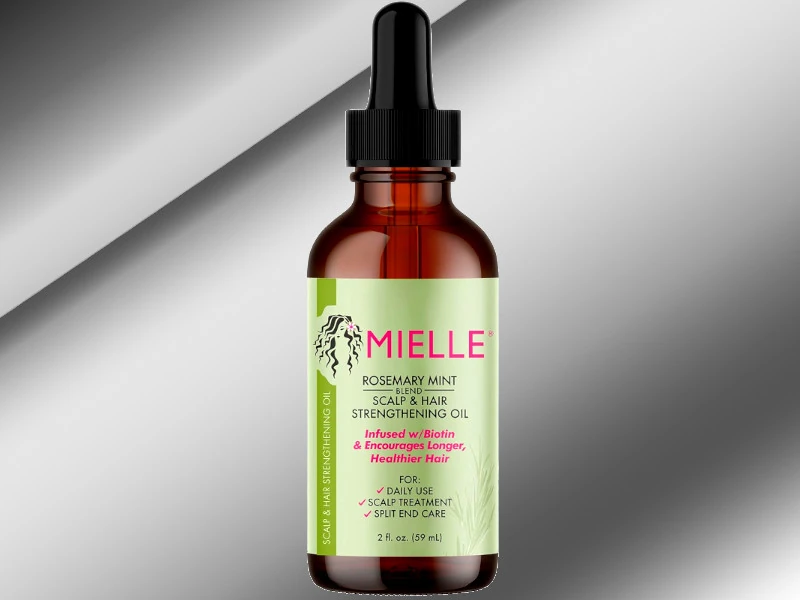Castor Oil for Hair Growth: A Miracle Elixir?
Are you on a quest for luscious, flowing locks? Have you heard whispers about the legendary powers of castor oil for hair growth? This natural oil, extracted from castor beans, has been a staple in beauty routines for centuries, passed down through generations with claims of transforming lackluster strands into thick, vibrant manes. Ancient Egyptians revered its potential, and even today, castor oil holds a prominent place on beauty shelves worldwide.
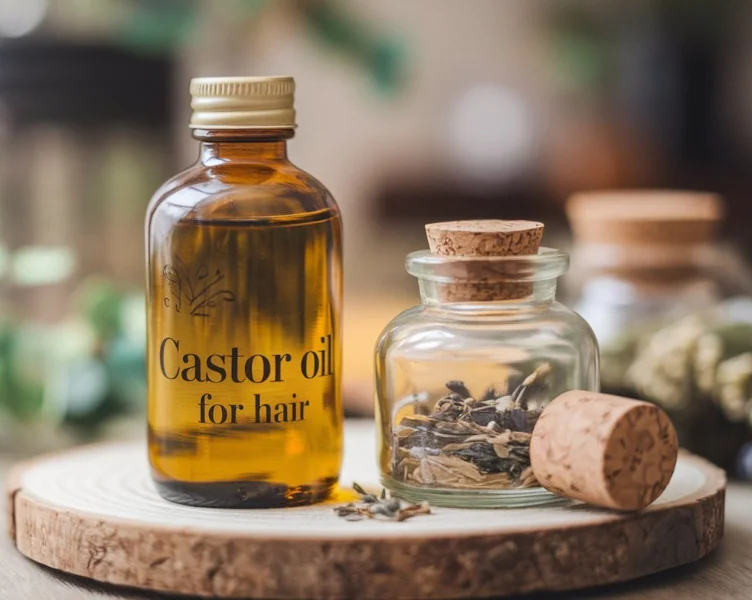
While the internet is brimming with anecdotal accounts of castor oil’s hair-growth miracles, it’s crucial to approach these claims with a balanced perspective. The scientific community has yet to fully embrace the hype, with limited research available to definitively confirm that castor oil alone can accelerate hair growth. However, dismissing castor oil entirely would be a hasty move.
This oil possesses a unique composition that offers several potential benefits for hair health, particularly when it comes to nurturing the scalp, the very foundation from which strong, healthy hair emerges.
- Understanding Castor Oil and Its Potential Benefits for Hair Growth
- Putting Castor Oil to Work: A Guide to Application for Hair Growth
- Exercising Caution: Risks and Precautions When Using Castor Oil for Hair Growth
- Beyond Castor Oil: Exploring Additional Avenues for Promoting Hair Growth
- Tying It All Together: Concluding Thoughts on Castor Oil for Hair Growth
- Frequently Asked Questions
Understanding Castor Oil and Its Potential Benefits for Hair Growth
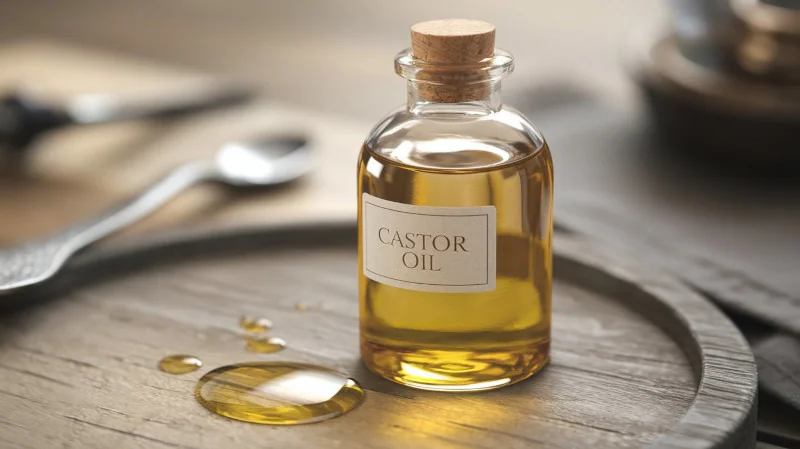
This section explores what makes castor oil for hair growth a popular choice for many seeking thick hair and overall hair health.
Castor oil for hair is extracted from castor beans, resulting in a pale yellow liquid. It’s a rich source of ricinoleic acid, a unique fatty acid known to have anti-inflammatory properties. This anti-inflammatory action is believed to benefit scalp health, which is crucial for optimal hair growth.
Castor oil is also recognized for its antibacterial and antifungal properties. These properties may play a role in protecting the scalp from infections and fostering a healthier environment for hair growth.
Additionally, castor oil for hair is a good source of antioxidants. Antioxidants help protect cells from damage caused by free radicals, which have been linked to hair loss.
Another notable component of castor oil is omega-6 fatty acids. These are essential fatty acids that play a vital role in hair growth and may also help in reducing inflammation of the hair follicles.
Potential Benefits of Castor Oil for Hair
The combination of these properties leads to several potential benefits for hair, even though research is limited:
- Moisture and Shine: Castor oil for hair growth acts as a natural moisturizer, sealing in the hair’s natural oils. This can help prevent breakage and split ends, leaving hair smoother and shinier.
- Scalp Health: The anti-inflammatory, antibacterial, and antifungal properties of castor oil for hair may help soothe an irritated scalp and protect it from infections. A healthy scalp is essential for the growth of strong, healthy hair.
It’s important to remember that while many individuals and cultures use castor oil for hair growth with positive results, scientific evidence supporting these claims is still limited. More research is needed to determine the true extent of castor oil‘s benefits for hair growth.
Putting Castor Oil to Work: A Guide to Application for Hair Growth
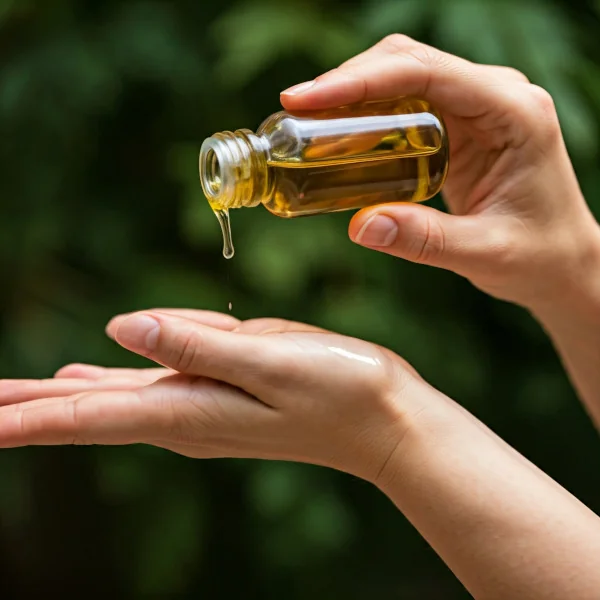
This section provides practical guidance on how to incorporate castor oil for hair growth into your hair care regimen.
Choosing the Right Castor Oil for Your Hair
When selecting castor oil for hair care, there are a few factors to consider:
Type of Castor Oil:
- Cold-pressed castor oil is generally recommended. Cold-pressing extracts the oil without heat or harsh chemicals, preserving its nutrients and quality.
- Jamaican black castor oil is another popular option. It’s made with roasted castor beans and ash, and it’s believed to be especially beneficial for those with thick, dry, or coarse hair.
Labeling:
“Cold-pressed” on the label indicates the oil was extracted without heat or harsh chemicals.
“Hexane-free” ensures that no chemical solvents are used during the extraction process.
Quality and Purity:
- Unrefined castor oil is minimally processed and retains more of its natural nutrients.
- Look for organic castor oil to avoid pesticides and other potentially harmful chemicals.
Additional Ingredients:
Some castor oil products are blended with other hair-healthy oils, such as coconut oil, jojoba oil, or argan oil. These blends can provide additional benefits and make application easier.
Remember: Individual preferences and hair types can influence the best choice of castor oil. Experimenting with different types and blends may be helpful to find what works best for you.
Our recommendation is the Kate Blanc Cosmetics Organic Castor Oil based on its usage, quality, popularity, and customer satisfaction.
Preparing for Your Castor Oil Treatment
Given the thick and sticky nature of castor oil, it’s often recommended to dilute it with another hair-healthy oil. This can make application and removal easier, and may also enhance the overall benefits for your hair and scalp.
Here are a few popular choices:
- Coconut Oil: A popular choice for its moisturizing properties and ability to penetrate the hair shaft.
- Jojoba Oil: Closely resembles the scalp’s natural sebum, making it a good option for most hair types.
- Argan Oil: Rich in antioxidants and fatty acids, known to add shine and softness to hair.
Experimenting with different combinations can help you find the blend that works best for your hair type and preferences.
Applying Castor Oil for Hair Growth
- Start Small: Begin with a small amount of castor oil to gauge your hair’s response and ensure you don’t experience any irritation.
- Scalp Massage: Gently massage the oil into your scalp, focusing on areas where you’re experiencing hair thinning or where you desire increased growth.
- Spread to Lengths: If desired, comb the oil through the lengths of your hair to add moisture and shine.
- Consider a Hot Oil Treatment: Some individuals find that warming the oil slightly enhances penetration and absorption.
- Cover with a Shower Cap: This can help trap heat and prevent the oil from staining bedding or clothing.
- Leave-in Time: Allow the oil to sit for at least 20 minutes, or even overnight for deeper conditioning.
Removing Castor Oil
Due to its viscosity, removing castor oil can require a bit of effort. Here are a few techniques that may make the process easier:
- Pre-Conditioning: Applying conditioner to your hair before shampooing can help break down the oil and make it easier to rinse out.
- Egg Wash: Whisking an egg and massaging it into your scalp before shampooing is another natural method for removing oil and adding nutrients to your hair.
- Double Shampoo: A second shampoo application may be necessary to ensure all traces of oil are removed.
Frequency of Castor Oil Treatments
The frequency of castor oil for hair growth treatments will vary depending on your hair type and individual needs. Some people find benefit from weekly applications, while others may prefer to use them less often. It’s generally recommended to start with once a week and adjust as needed.
Considerations and Precautions
While castor oil for hair growth is generally considered safe for topical use, it’s always a good idea to exercise caution and perform a patch test before applying it to your entire scalp. Apply a small amount of diluted castor oil to a small area of skin and wait 24 hours to observe for any irritation or allergic reaction.
If you’re pregnant, it’s advisable to avoid using castor oil, as it has been anecdotally linked to inducing labor.
If you’re experiencing excessive hair loss, it’s essential to consult a healthcare provider to rule out any underlying medical conditions. Castor oil for hair growth may offer supportive benefits, but it should not be considered a replacement for professional medical advice or treatment.
Remember, consistency is key when it comes to any hair care regimen. If you choose to incorporate castor oil for hair growth into your routine, be patient and observe how your hair responds over time.
Exercising Caution: Risks and Precautions When Using Castor Oil for Hair Growth
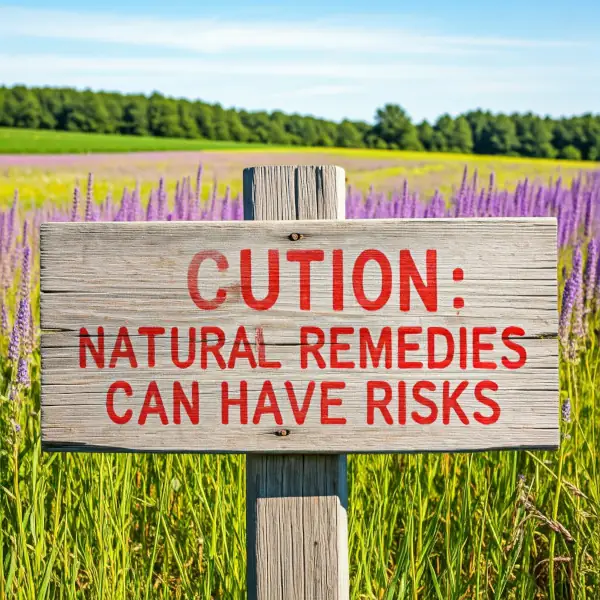
Let us look at the important safety considerations and potential risks associated with using castor oil for hair.
Potential Side Effects and Allergic Reactions
While generally considered safe for topical use, castor oil for hair growth may cause adverse reactions in certain individuals.
- Skin Irritation: Some people may experience contact dermatitis, characterized by redness, itching, or a rash, upon contact with castor oil. This can be due to an allergy to the castor bean plant or sensitivity to the oil itself.
- Acute Hair Felting: A rare but serious condition known as acute hair felting has been linked to castor oil use. This occurs when hair becomes tangled into a hard mass that cannot be separated and must be cut off. The risk of this condition is higher for those with long hair.
To minimize the risk of these castor oil side effects, it’s crucial to:
- Perform a Patch Test: Apply a small amount of diluted castor oil for hair to your inner arm or behind your ear and wait 24 hours to observe for any adverse reactions.
- Dilute the Oil: Mixing castor oil with carrier oil, like coconut oil, jojoba oil, or argan oil, can reduce the likelihood of irritation and improve application.
- Start Slowly: Begin with a small amount of castor oil and gradually increase the amount and frequency of application as tolerated.
- Avoid Contact with Eyes: Be extremely careful when applying castor oil near the eyes, as it can cause irritation716. If contact occurs, flush your eyes with water immediately.
Ingestion of Castor Oil
Castor oil is also known for its powerful laxative effects, and ingesting excessive amounts can lead to a range of gastrointestinal issues.
Signs of a castor oil overdose include:
- Stomach cramps
- Nausea
- Diarrhea
- Shortness of breath
- Chest pain
- Throat tightness
- Skin rash
- Dizziness
- Fainting
- Hallucinations (rare)
It’s crucial to store castor oil out of reach of children and to never ingest it without medical supervision.
Castor Oil and Pregnancy

Many sources advise against using castor oil for hair growth during pregnancy, particularly for those nearing their due date. This is due to the oil’s potential to stimulate uterine contractions and induce labor.
If you are pregnant or breastfeeding, consult with your healthcare provider before using castor oil for any purpose.
Consulting a Healthcare Provider
If you’re experiencing persistent hair loss or scalp concerns, it’s essential to seek advice from a healthcare professional. They can help determine the underlying cause of your hair loss and recommend appropriate treatment options.
Castor oil for hair growth may be a helpful adjunct to other treatments, but it should not be considered a replacement for professional medical advice.
Highlights of Precautions
While castor oil for hair growth is generally considered safe for topical use, it’s essential to be aware of potential side effects and take precautions to minimize risks.
- Always perform a patch test before using castor oil, dilute it with carrier oil, and avoid contact with the eyes.
- Never ingest castor oil without medical supervision.
- If you are pregnant or have underlying health conditions, consult with your healthcare provider before using castor oil.
By following these guidelines and using castor oil for hair growth responsibly, you can enjoy its potential benefits while minimizing the risk of adverse effects.
Beyond Castor Oil: Exploring Additional Avenues for Promoting Hair Growth
While castor oil for hair growth is a popular natural remedy, there are other strategies and treatments that may help promote hair growth and enhance scalp health. This section explores some of these additional options.
Seeking Professional Guidance: Medical Treatments for Hair Loss
If you’re experiencing significant hair loss, consulting a healthcare provider is crucial. They can help determine the underlying cause of your hair loss and recommend appropriate treatment options, which may include:
- Minoxidil (Rogaine): An over-the-counter medication approved by the FDA for treating hair loss. Minoxidil is applied topically to the scalp and is believed to work by prolonging the growth phase of hair follicles. It’s important to note that results from minoxidil typically take several months to become noticeable, and continued use is necessary to maintain benefits.
- Addressing Nutrient Deficiencies: Certain vitamin and mineral deficiencies, such as low vitamin D or vitamin B levels, can contribute to hair loss. A blood test can help identify any deficiencies, and your healthcare provider may recommend dietary changes or supplements to address these issues.
Lifestyle Practices for Healthy Hair Growth
In addition to medical treatments, several lifestyle practices can support hair growth and overall hair and scalp health:
- Scalp Massage: Regular scalp massage can help improve blood circulation to the scalp, potentially delivering more nutrients to hair follicles. One study found that using a mechanical scalp massager for four minutes daily for 24 weeks resulted in thicker hair.
- Stress Management: Research suggests that stress can contribute to hair loss. Finding healthy ways to manage stress, such as exercise, meditation, or spending time in nature, may help promote hair growth.
- Caffeine-Infused Hair Products: Some studies suggest that caffeine may stimulate hair growth. Shampoos and other hair products containing caffeine are available.
Natural Remedies: Exploring the Potential of Essential Oils
While research is still preliminary, some essential oils have shown promise in promoting hair growth:
- Rosemary Essential Oil: One study found that rosemary essential oil was as effective as minoxidil in promoting hair growth.
- Pumpkin Seed Oil: Another study found that pumpkin seed oil had similar results in promoting hair growth, comparable to minoxidil.
A Holistic Approach to Hair Care
It’s important to remember that hair growth is a complex process influenced by multiple factors, including genetics, hormones, nutrition, and overall health. While castor oil for hair growth and other remedies may offer supportive benefits, a holistic approach that addresses multiple aspects of hair health is often the most effective strategy.
This may include:
- Eating a Nutrient-Rich Diet: Consuming a balanced diet that provides essential vitamins, minerals, and protein is essential for supporting healthy hair growth.
- Using Gentle Hair Care Practices: Avoiding harsh chemicals, excessive heat styling, and tight hairstyles can help minimize damage and breakage, promoting healthier hair.
- Getting Enough Sleep: Adequate sleep is crucial for overall health, including hair growth.
It’s also important to remember that individual responses to treatments and remedies can vary widely. What works well for one person may not be as effective for another. If you’re concerned about hair loss or seeking to improve your hair health, consult a healthcare provider or a qualified hair and scalp specialist who can provide personalized guidance and recommendations.
Tying It All Together: Concluding Thoughts on Castor Oil for Hair Growth
This blog post explores the use of castor oil as a natural remedy for promoting hair growth, enhancing scalp health, and improving the overall appearance of hair. While anecdotal evidence and traditional practices support these claims, scientific research in this area remains limited.
Castor oil is rich in ricinoleic acid, a fatty acid believed to possess anti-inflammatory properties that may benefit the scalp. It’s also a humectant, meaning it attracts and retains moisture, which can contribute to softer, more manageable hair.
You found practical guidance on how to incorporate castor oil into a hair care routine, emphasizing the importance of dilution, patch testing, and gradual introduction to minimize the risk of irritation or allergic reactions.
It’s crucial to note that castor oil is not a guaranteed solution for hair loss or a miracle cure for achieving rapid hair growth. Individual responses can vary widely, and it’s essential to manage expectations.
If you’re experiencing excessive hair loss or persistent scalp issues, consulting a healthcare professional is essential. They can help identify any underlying medical conditions and recommend appropriate treatment options.
We also did highlight other methods for promoting hair growth, including:
- Medical treatments like minoxidil.
- Addressing nutrient deficiencies.
- Lifestyle practices such as scalp massage and stress management.
- Exploring the potential benefits of certain essential oils.
A holistic approach to hair care that encompasses a balanced diet, gentle hair care practices, and overall well-being is crucial for supporting healthy hair growth.
Ultimately, while castor oil may offer supportive benefits for some individuals, it’s important to approach its use with realistic expectations, informed by both traditional wisdom and current scientific understanding.
Source:
- Castor oil for longer locks
https://www.healthline.com/health/beauty-skin-care/castor-oil-hair-growth#longer-locks - Castor Oil” – The Culprit of Acute Hair Felting
https://www.ncbi.nlm.nih.gov/pmc/articles/PMC5596646/ - Standardized Scalp Massage Results in Increased Hair Thickness by Inducing Stretching Forces to Dermal Papilla Cells in the Subcutaneous Tissue
https://www.ncbi.nlm.nih.gov/pmc/articles/PMC4740347/ - Castor Oil for Hair Growth: Benefits, Side Effects, and How to Use It
https://www.verywellhealth.com/using-castor-oil-for-hair-growth-4172190 - Pumpkin Seed Oil: An Alternative Medicine
https://www.ncbi.nlm.nih.gov/pmc/articles/PMC8681145/ - Can Castor Oil Actually Help Your Hair Grow?
https://www.allure.com/story/castor-oil-for-hair-growth - The Health Benefits of Castor Oil For Hair Growth
https://www.health.com/castor-oil-for-hair-growth-8676327 - Does castor oil for hair growth really work? We asked dermatologists to find out
https://www.cnn.com/cnn-underscored/beauty/castor-oil-for-hair-growth - 4 Benefits and Uses of Castor Oil
https://www.healthline.com/nutrition/castor-oil - How to Use Castor Oil for Hair
https://wellnessmama.com/beauty/castor-oil-hair/
Frequently Asked Questions
Trust in your purchase:
Every product featured on our site has been carefully researched and selected based on quality, customer ratings, and positive reviews to ensure you receive excellent value for your money.
Please note:
This post contains affiliate links. If you make a purchase through these links, we may earn a small commission at no additional cost to you. This helps support our site and allows us to continue bringing you valuable content. Thank you!
Thank you for your precious time spent with AestheticThrive.

